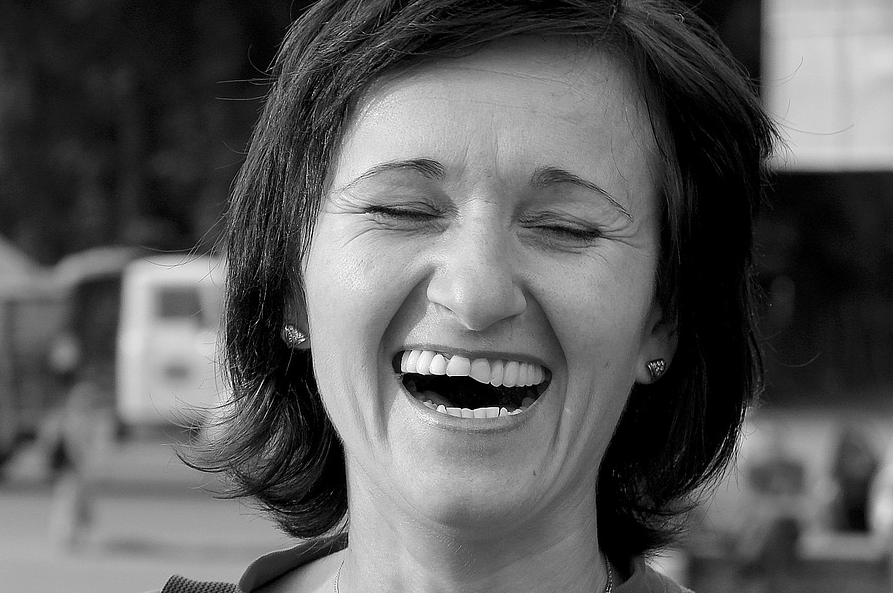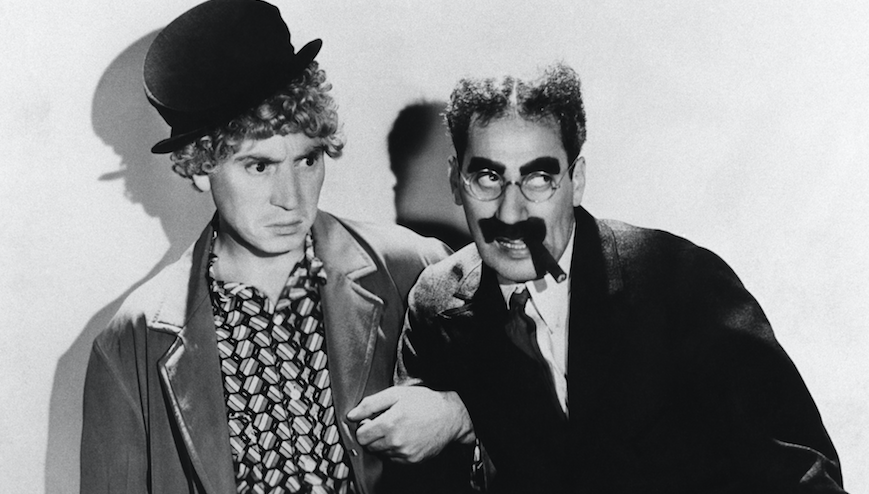Grief & Humor
Because HOPE groups are organized by the number of months since a person’s spouse has died, group members quickly notice one distinct difference between the groups. Group One members are typically quieter, both entering and leaving their group meetings. For good reason, of course — their pain is too raw, the emotions too overwhelming for much social interaction to occur between group members.
But by the end of Group One, and certainly in Groups Two – Five, the difference is striking: group members enter and leave their meetings laughing and chatting, sometimes almost startling the therapists who lead the groups — what is this, a party?

This is not to diminish the time actually spent in group sessions at all. When people settle down and speak, the thoughts and feelings expressed are genuine, without hiding behind any cover of humor. But that word, humor, is important. People naturally — and many therapists say “healthily” — turn to humor to deal with their grief.
Marilyn Mendoza, Ph.D. works in hospice care. In an article she wrote for Psychology Today, “The Healing Power of Laughter in Death and Grief,” she says that “hospice can also be a place for humor. A study done at Kent State and reported in the American Journal of Hospice and Palliative Care revealed that humor was present in 85 percent of 132 observed nurse based visits. Amazingly, they found that 70 percent of the humor was initiated by the patient. If humor is a part of living, then why should it not be a part of dying?”
Mendoza notes how far some people go to pull off a bit of humor. She cites one case, where “Prior to a bone marrow transplant, a patient threw a ‘Bone Voyage’ party in which everyone came with a hat or a scarf on their head. The recipient of the transplant wore a bald cap.”
Countless studies show the benefits of laughter. Norman Cousins brought the topic into the popular consciousness with his book, Anatomy of an Illness, back in 1979.
Dr. Joe Guse, in a blog post about the “Healing Power of Laughter,” explores Cousins’ story. Cousins had been diagnosed in 1964 with a rare disease called Ankylosing Spondylitis, a deterioration of the connective tissue in his spine that left him with a one-in-500 chance of surviving.
After much research about everything from diet to hospital issues with infection, Cousins came across research about the stimulation of chemicals in the body through laughter. Oddly enough, or maybe logically enough, he rented a bunch of Marx Brothers films and started watching comedies. He would laugh so hard that he would enjoy hours of pain-free sleep without medication.

There is no verified proof that laughter cured his disease, or even contributed to the cure. But… but there is an intuitive recognition that laughter is good for you. Mendoza, in her article on laughter and grief, says “Humor is also important during the time of grieving. When we are in the depths of despair over the loss of our loved one, it is hard to think that we will ever smile again let alone laugh. One of the tasks of grieving is to learn to laugh again. A study from the University of Berkeley found that widows and widowers who could smile and laugh when remembering a loved one experienced less anxiety and depression at six, 12, and 24 months. Many successful bereavement groups incorporate laughter where members are encouraged to share humorous experiences associated with their loved one.”
Roberta Gold, an author and humor therapy consultant associated with The Association for Applied and Therapeutic Humor, writes “Letting ourselves laugh does not mean we are done grieving. I don’t think we are ever done grieving, not if we have lost someone we have loved deeply. It also does not mean we are done crying. It just means that we have opened up our hearts to experience some joy. It may also help us to remember those times with our loved one that we laughed and joked and played and had fun. When we have lost somebody we loved, the best thing we can do to keep their memory alive is telling the stories that make us smile and the inside jokes we shared and the times we laughed together.”
So next time you hear Hope group members laughing and kidding each other as they wander to their group rooms, be encouraged by how well they are healing.

